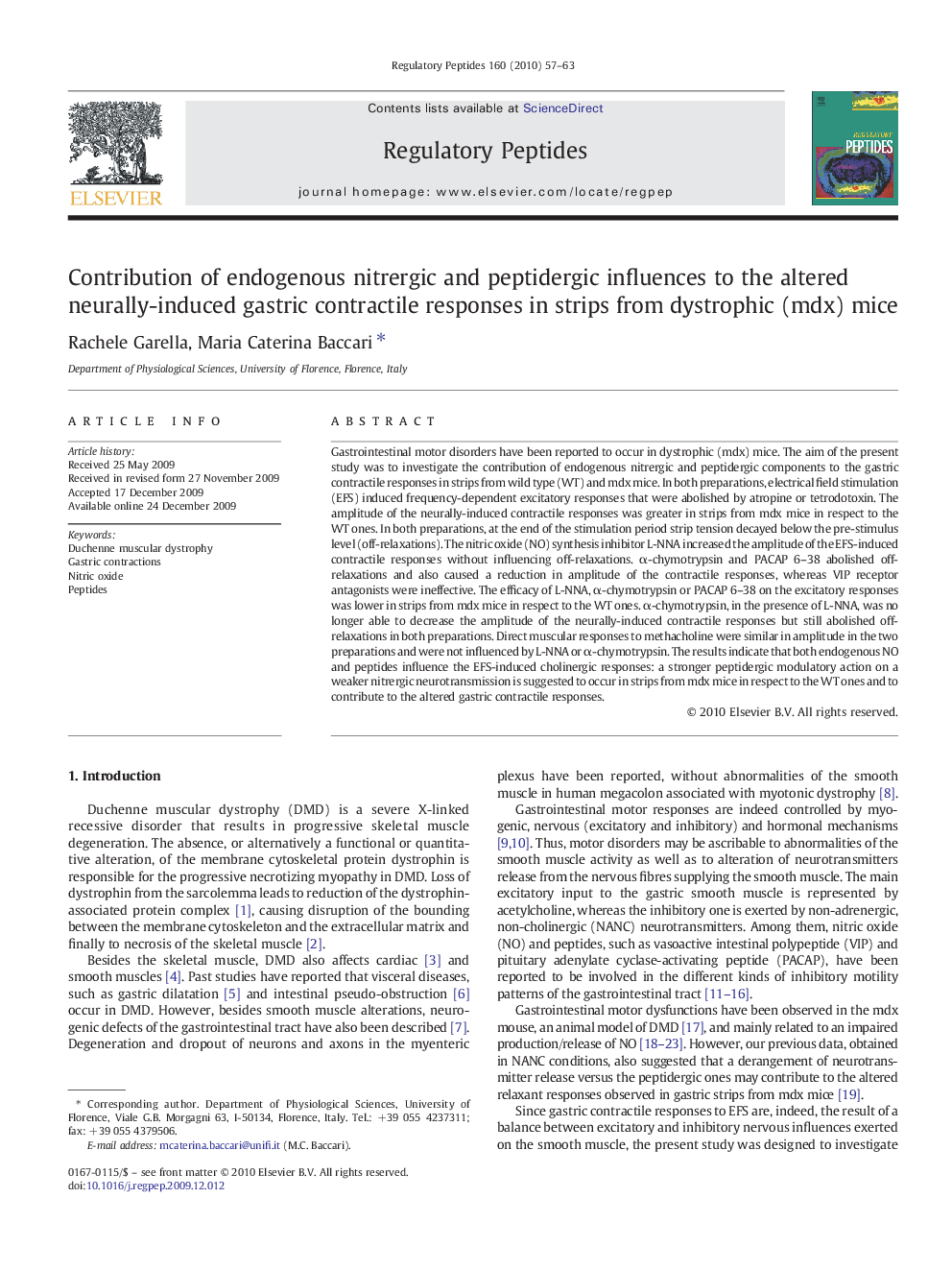| Article ID | Journal | Published Year | Pages | File Type |
|---|---|---|---|---|
| 2022877 | Regulatory Peptides | 2010 | 7 Pages |
Gastrointestinal motor disorders have been reported to occur in dystrophic (mdx) mice. The aim of the present study was to investigate the contribution of endogenous nitrergic and peptidergic components to the gastric contractile responses in strips from wild type (WT) and mdx mice. In both preparations, electrical field stimulation (EFS) induced frequency-dependent excitatory responses that were abolished by atropine or tetrodotoxin. The amplitude of the neurally-induced contractile responses was greater in strips from mdx mice in respect to the WT ones. In both preparations, at the end of the stimulation period strip tension decayed below the pre-stimulus level (off-relaxations). The nitric oxide (NO) synthesis inhibitor L-NNA increased the amplitude of the EFS-induced contractile responses without influencing off-relaxations. α-chymotrypsin and PACAP 6–38 abolished off-relaxations and also caused a reduction in amplitude of the contractile responses, whereas VIP receptor antagonists were ineffective. The efficacy of L-NNA, α-chymotrypsin or PACAP 6–38 on the excitatory responses was lower in strips from mdx mice in respect to the WT ones. α-chymotrypsin, in the presence of L-NNA, was no longer able to decrease the amplitude of the neurally-induced contractile responses but still abolished off-relaxations in both preparations. Direct muscular responses to methacholine were similar in amplitude in the two preparations and were not influenced by L-NNA or α-chymotrypsin. The results indicate that both endogenous NO and peptides influence the EFS-induced cholinergic responses: a stronger peptidergic modulatory action on a weaker nitrergic neurotransmission is suggested to occur in strips from mdx mice in respect to the WT ones and to contribute to the altered gastric contractile responses.
